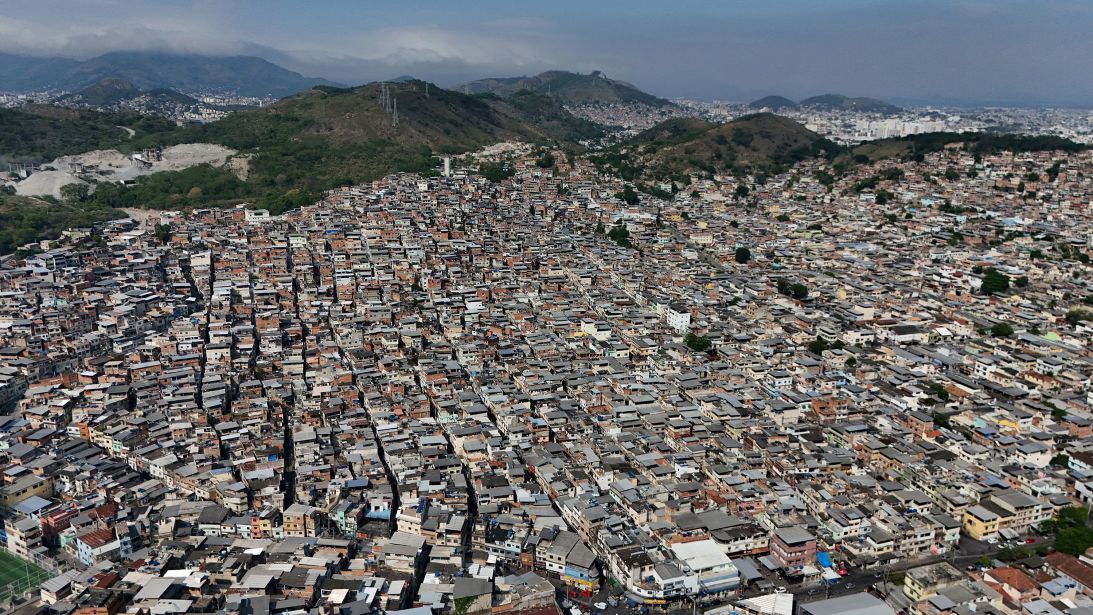World
Deadly Police Operation in Rio Targets Criminal Networks

On October 28, 2023, a massive police operation in Rio de Janeiro resulted in significant violence, as authorities clashed with members of the Comando Vermelho (CV), a notorious criminal organization. The operation, named “Operation Containment,” involved approximately 2,500 police officers and soldiers who targeted the Complexo da Penha and Complexo do Alemão favelas, areas home to around 110,000 residents. The confrontation left at least 121 people dead, including four police officers, while nearly 100 individuals were arrested.
Authorities reported the seizure of substantial weapons caches, including 118 firearms and a ton of illegal drugs. The operation was prompted by a year-long investigation into the Red Command and a marked increase in violence linked to their activities. Officials hailed the raid as a necessary step to reassert state control over areas increasingly dominated by criminal gangs.
Community Response and Criticism
Local and international human rights organizations swiftly condemned the operation. Activists like Thainá de Medeiros, a community organizer from Complexo da Penha, criticized the violent approach. “It’s not the first time we see blood being spilled for a ‘greater good,’” she stated, reflecting the skepticism many feel about the effectiveness of such operations.
Rafael Alcadipani, a member of the Brazilian Forum on Public Security, emphasized that gangs exert significant control over these communities, dictating local economic activities and imposing their authority on residents. “The state abandons these communities, and then gangs end up gaining even more control,” Alcadipani explained.
While some, like right-leaning congressman Luiz Lima, defended the operation as essential in combating rampant crime—pointing to Brazil’s staggering homicide rate of over 38,000 in the previous year—critics argue that the militarized response only exacerbates the cycle of violence. Daniela Fichino of the human rights group Global Justice criticized the state for effectively enacting a death penalty for marginalized communities.
The Rise of the Comando Vermelho
Founded in 1979 within the Cândido Mendes Penitentiary, the Comando Vermelho originated from a coalition of common criminals and political prisoners during Brazil’s military dictatorship. Over the years, it evolved into a powerful network controlling significant drug trafficking routes in Rio.
In the 1980s, the group expanded its activities, dominating approximately 70% of the drug market in the city. Its historical context illustrates the complex dynamics between organized crime and state governance. The Red Command’s influence has only grown, with contemporary reports indicating an increasing involvement in various criminal enterprises, including extortion and money laundering.
The Comando Vermelho’s primary rival, the Primeiro Comando da Capital (PCC), established in 1993, has also emerged as a significant force in Brazil’s criminal landscape. Initially existing in a state of fragile coexistence, tensions have escalated as both factions vie for control over lucrative drug trafficking routes.
The competition has led to brutal confrontations, including prison riots that have claimed hundreds of lives. A report by the Brazilian Forum on Public Security noted that in 2022, organized crime groups like the Red Command and PCC generated approximately 146.8 billion Brazilian reais (around $27 billion) through their extensive criminal operations.
As the government grapples with how to effectively combat entrenched criminal networks, the recent police operation illustrates the ongoing struggle between state authority and organized crime in Brazil.
Community leaders, such as de Medeiros, were actively pursuing initiatives aimed at providing youth with opportunities to escape the clutches of crime, including planned career fairs that had to be canceled in the wake of the violence. “Instead of celebrating what could have been a beautiful day, we were cleaning bodies from the streets,” she lamented.
The situation in Rio remains precarious, with many questioning whether more aggressive policing can indeed dismantle deeply rooted criminal organizations or if it merely perpetuates a cycle of violence that harms ordinary citizens caught in the crossfire.
-

 Science3 weeks ago
Science3 weeks agoInventor Achieves Breakthrough with 2 Billion FPS Laser Video
-

 Health4 weeks ago
Health4 weeks agoCommunity Unites for 7th Annual Into the Light Walk for Mental Health
-

 Top Stories4 weeks ago
Top Stories4 weeks agoCharlie Sheen’s New Romance: ‘Glowing’ with Younger Partner
-

 Entertainment4 weeks ago
Entertainment4 weeks agoDua Lipa Aces GCSE Spanish, Sparks Super Bowl Buzz with Fans
-

 Business4 weeks ago
Business4 weeks agoTyler Technologies Set to Reveal Q3 Earnings on October 22
-

 Entertainment4 weeks ago
Entertainment4 weeks agoMother Fights to Reunite with Children After Kidnapping in New Drama
-

 Health4 weeks ago
Health4 weeks agoCurium Group, PeptiDream, and PDRadiopharma Launch Key Cancer Trial
-

 World4 weeks ago
World4 weeks agoR&B Icon D’Angelo Dies at 51, Leaving Lasting Legacy
-

 Entertainment4 weeks ago
Entertainment4 weeks agoRed Sox’s Bregman to Become Free Agent; Tigers Commit to Skubal
-

 Health4 weeks ago
Health4 weeks agoNorth Carolina’s Biotech Boom: Billions in New Investments
-

 Top Stories3 weeks ago
Top Stories3 weeks agoFormer Mozilla CMO Launches AI-Driven Cannabis Cocktail Brand Fast
-

 Science4 weeks ago
Science4 weeks agoNorth Carolina’s Biotech Boom: Billions Invested in Manufacturing









